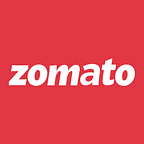What it meant (and still means) to me to be a Zoman
By Shantanu Basrur
This post was originally published on Zomato Blog on July 10, 2017.
Back in 2015, when we were kickstarting our Culture Blog (the one you’re reading this post on right now), we’d emailed everyone in the company asking them to send in stories about their time at Zomato. It was an intentionally open-ended brief, so everyone was free to interpret it as they wished — be it as a single, defining event (as many did) or as a larger emotion. The post below is actually an email I’d sent to Deepinder at the time (never really intending it to become a ‘story’ for the blog). Fast forward 2 years — Zomato’s turning 9, and I’m on a new adventure. But reading this email back, I find it still holds true. I feel an immense sense of pride, and that familiar sense of discontentment. You’ll know what I mean by the end of the post 🙂
From: shantanu@zomato.com
Date: Sat, Aug 15, 2015 at 2:15 AM
Subject: What it means to be a Zoman
To: d@zomato.com
To me, Zomato — the family I became a part of three years ago — along with everything that’s come with it, is the epitome of ‘Think Different’. No, it has nothing to do with Apple, and while it’s been one of my favourit-est campaigns of all time, I think — no, I know — that ‘think different’ is a mindset. Duh, you say, that’s what it says. But no, they just used to be words of inspiration to me once upon a time. Now, more recently and over bare-souled interactions with the people I love and respect the most, have I understood that they are so much more than just two words from an iconic ad campaign.
When I joined Zomato in 2012, we were in 8 cities in India. Eight. We were fighting Burrp to be India’s biggest, most exhaustive restaurant search and discovery app. We fought scrappy battles to become #1 in a game that had two players. We could’ve been happy to be slugging it out in that game, but no, we didn’t think like the others did. We went balls to the wall and launched internationally. We walked the streets in the summer heat collecting menus, and went live just over a month after we started. Pankaj — our Co-Founder, and Albi — our then Head of International Operations (and also one of the most terrifyingly smart people I’ve met) were right there with us, and we were walking the streets together. They didn’t treat us any differently, and we were all in the same 50º heat, collecting menus because we needed to launch. We all stayed in the same hotel rooms, and lived and ate on a shoestring budget (our entire day’s food budget was less than what many people in Dubai spend on a single meal). That’s focus, humility, and frugality, all rolled into one. Without even realizing it, I learned some of my biggest cultural lessons in those weeks.
I speak for myself here, but I don’t know if everyone realized at the time that that could be the start of something bigger than we ever imagined. But evidently, they did. It takes courage to take the kind of decisions that we have taken as a company. I can’t think of anyone else who’s said “Let’s launch five international cities to celebrate turning five”. Not even sure how many startups these days are around to see the sun rise on their fifth anniversary.
From then on, I think we’ve become the exact people the original Think Different ad talks about — the crazy ones, the misfits, the rebels. I’m proud of Zomato’s every achievement, whether I’ve had a part to play in it or not. I’m proud that we stick out like sore thumbs when we talk about our culture, and defend it from those who tell us otherwise. Most of all, I’m insanely proud that we’ve had the balls to show the proverbial middle finger to those who lay down the rules. Granted, there are amazing companies out there doing amazing things in India and elsewhere, but not one of them went halfway across the world to swallow whole a significantly larger competitor in completely uncharted territory. That, to me, is the ultimate definition of calculated rebellion.
Today, I think we’re sitting on the cusp of something that most people wouldn’t ever have imagined of us seven years ago, much less me from three years ago. We’re now so much more than just a restaurant discovery app. Transactions. Online ordering. Table reservations. Point of Sale. Tomorrow — downloadable food? Maybe.
After mulling over this thought, I’d like to believe I’ve sort of figured out why we do what we do. It’s because we are — in a word — discontented. No, not the kind that unhappy factory workers are. It’s the kind of discontent that won’t let you sleep at night because you can’t wait to get back to what you love doing the next morning. The kind of discontent that empowers you to do the unreasonable, and stand by it, be laughed at, then scare people shitless by showing them what you’re actually made of. I think it’s that discontent that drives us to be more than the winner in each of the games that we’re playing.
It’s that discontent that drives us to rewrite the rules of the game itself.
